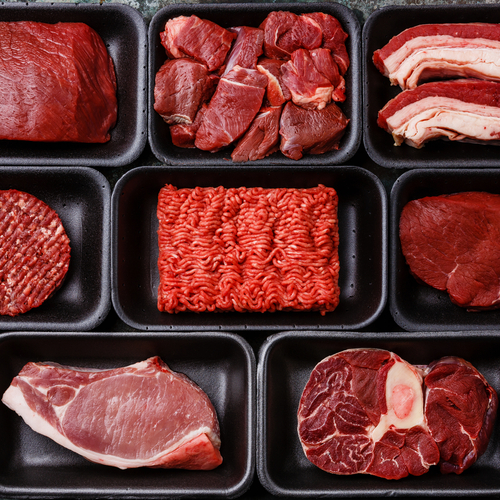Attacking Milk? In Wisconsin? Are You Serious? — The latest anti-food jihad from the Center for Science in the Public Interest — an effort to “ban 2 percent and whole milk from schools” — has been labeled “laughable” by the Wisconsin State Journal. If the Journal thinks this latest effort to steer kids from a vital source of calcium is ridiculous, it should look closely at CSPI’s other attacks against foods it doesn’t like.
Obesity Lawsuits Still On Our Plates
The call for more frivolous obesity lawsuits was sounded again at an annual Washington, DC conference on food and nutrition. Center for Science in the Public Interest food-cop-in-chief Michael Jacobson repeated his call for “innovative lawsuits” against food companies. Public Health Advocacy Institute board member (and long-time tobacco litigator) Richard Daynard joined the chorus of sue-mongers as well — and got in some digs against personal responsibility. Meanwhile, both houses of Florida’s legislature have now passed a bill that would protect restaurants from this kind of cheeseburger-driven courtroom drama. Presuming Governor Jeb Bush concurs, Florida will join six other states that have already taken this step. And similar bills in nine more could become law soon.
Activists Hate The Latest Hit From The Supremes
Dakota Rural Action is South Dakota’s biggest and best-funded group aligned against efficient, modern farms. This week the group saw its “Amendment E” law (which aimed to ban large-scale livestock farming statewide) shot down by the U.S. Supreme Court. The death-knell couldn’t have come any sooner. One Farm Bureau representative notes that the mere threat of “Amendment E” becoming law has already cost South Dakota over 100 new economic developments.
Is Fat A Four-Letter Word?
Pushing back against considerable hysteria about the impact of dietary fat on human health, University of Colorado law professor Paul Campos argues in a new book that the health toll of our love-handles has been greatly exaggerated. “Weight is not a good measure of health,” he says. In a book excerpt published by Great Britain’s Guardian newspaper, Campos adds: “a strong, predictable relationship between increasing weight and increasing mortality … is not supported by the available evidence.” And he tells his campus paper that fast-food consumption isn’t the demon we’ve all been led to believe it is. “The heaviest consumers of fast food in this country,” Campos says, “are single men in their 20s who weigh less than the average American.”
The Real Biotech Monster: Rampant Ballot Measures
After voters in one California county approved a law banning the cultivation of genetically enhanced crops, it was only a matter of time before the activist-driven idea gathered steam. Now the Santa Rosa Press-Democrat reports that more than a dozen other California counties may soon put similar measures before the voters. These efforts are coordinated by a handful of activists concerned with promoting organic-only, 19th-Century agriculture. The whole idea of yanking the welcome mat when modernized farmers come knocking seems a bit like banning the computer industry from Silicon Valley — because a few abacus factories don’t like the competition.
Label It Their Way, Or Else
The Biloxi Sun-Herald reports (via the New York Times) about a restaurateur who “fears business would be hurt by a bill pending in the New York State Assembly that would require chain restaurants to print nutrition information on their menus.” That’s no surprise: “Each dish would have to be made exactly the same way every time in order for it to match the nutrition values asserted by the menu.” And that, he complains, would make his food “soulless.” Tell it to the Center for Science in the Public Interest, which zealously promotes the unworkable labels, and John “Sue the Bastards” Banzhaf, who would be first in line to cash in when your steak isn’t cut — or your ice cream isn’t scooped — exactly the same as the next guy’s.




